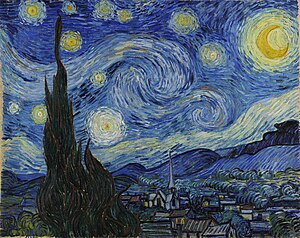"As
for Shabbetai Zevi being manic-depressive (this diagnosis is the glue that
holds together Scholem's thousand-page monograph), consider this: The whole
cosmos is bipolar, ying-yang, masculine-feminine, positive-negative,
anabolic-catabolic. Is the manic-depressive individual, the lunatic (from the
waxing and waning of the "luna"), perhaps just more sensitive, more
keyed to the rhythm of the cosmos? To listen to Scholem, Nathan of Gaza
projected Shabbetai Zevi's silhouette on the cosmos, grafted Shabbetai Zevi's
manic-depressive personality to cosmosgony. Maybe Nathan was saying the
Messiah, the most sensitive being of all, 'the breath of our nostrils,' most
reflects the natural order of things. What Scholem calls manic-depressive, is
actually hypersensitivity. The he'arah (illumination) and hester
panim (hiding of the face) of Shabbetai Zevi are the reflection of a
chiaroscuro reality.
"Nathan
posited that it is the interplay of the 'or sheyesh bo mahshavah (light
with thought) and the 'or she-ein bo mahshava (light without thought),
which is to say the interplay of constructive and destructive forces, that
makes up the cosmic drama. Was Freud saying anything different when he spoke of
the psyche - the individual and collective - being driven by two opposite
forces of Eros and Thanatos, twin instincts of self-preservation and
self-destruction?
"The
late Rabbi Isaac Hutner...was apprised of the condition of a former student, a
brilliant mathematician given to burning his mathematical papers. The young man
was diagnosed as manic-depressive; the doctors were confident he could be cured
with chemical lithium
"Rabbi
Hutner shook his head sadly, 'The problem is not chemical; it is cosmic.' He
went on to explain that according to the Midrash, at the time of the creation
of man there were two groups of angels. One group said man should be created;
the other group said man should not be created. Summed up the sage: 'A human
being has within those two groups of angels. One says, 'He should create!' The
other says, "He should not create!'
“Unfortunately,
the wise man's prognosis came true. Lithium bicarbonate proved powerless
against the voices of the naysaying angels."
-Reuven
Alpert, Caught in the Crack: Encounters with the Jewish Muslims of Turkey; A
Spiritual Travelog. Pp. 291-292
“A tradition associating genius with ‘madness’ had of course
existed since classical or even pre-classical times...The degeneracy theorists,
however, took this much further…which in effect identified genius with
‘madness,’ ‘insanity,” or ‘degeneracy.” [F.W.H.] Myers was on of the few who
disputed this facile reductionism…What Myers denies in the existence of
a relationship between genius and madness, but its interpretation by the
degeneracy theorists…For him that correlation reflects the fact that genius and
madness share, as an essential common feature, an unusual openness to the
subliminal. The degeneracy theorists, however, had missed a crucial difference
– namely, that genius masters its subliminal uprushes, whereas the insane are overwhelmed
by theirs.”
Edward F. Kelly & Michael Grosso, in Irreducible
Mind: Toward a Psychology for the 21st Century, pp. 470-471


2 comments:
Does Scholem correlates mania=Jewish Messiah and depression=Islam, non-Messiah?
If so, I think this is a too simplistic understanding of bi-polar. Often mania can contain a high dose of syncretism, and it would not be surprising for Shabbetai Tzvi to be Jewish-Islamic Messiah in a manic state
http://thepartialview.blogspot.com/2013/01/ami-magazine-shidduch-crisis-simply-and.html
Post a Comment